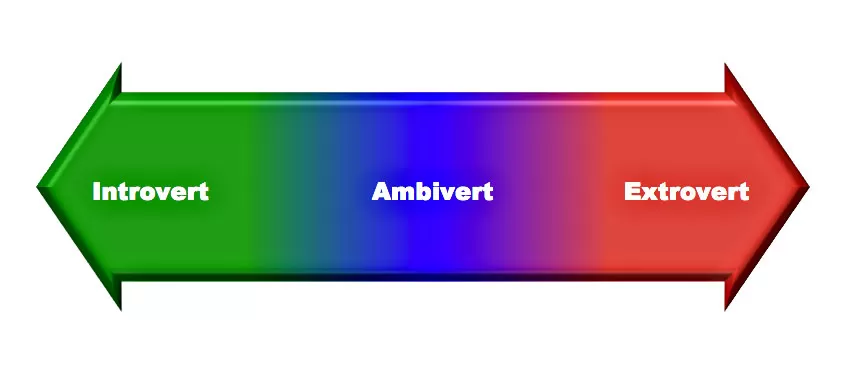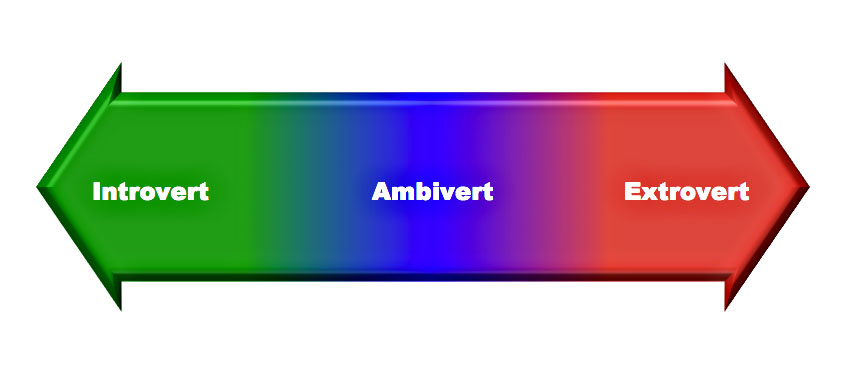
If you have ever taken the Myers Briggs Type Inventory (MBTI), then you probably know whether you are an introvert or an extrovert. This assessment was developed based on Carl Jung’s framework of psychological types. Jung coined the terms “Extrovert” and “Introvert” to describe the direction of one’s energy flow. He felt this dimension was one of the most substantial personality differences. Even if you haven’t taken the MBTI, it is likely you have a sense of your own preference in regards to what energizes you since extroversion and introversion are widely talked about. It’s generally considered that extroverts tend to be energized by the outside world (people, places and things around them) and their energy is externally directed; whereas, introverts tend to be energized by their inner world (own ideas, thoughts, concepts) and their energy is internally directed. Instead of thinking of this as a label, it might be more helpful to view these preferences as a continuum. If the descriptors for introverts or extroverts have never fully resonated with you, it might be because you are a slight extrovert or a slight introvert – an ambivert.  Ambiverts are those who fall relatively in the middle of being introverted and extraverted. They can slide up or down the spectrum depending on the context, situation and people around them. This is often referred to as situational introversion. They tend to identify with characteristics of both personality traits and can even adapt depending on the situation. Some have likened it to ability to be ambidextrous with your personality. The article “Not an Introvert? Not an Extrovert? You May Be an Ambivert” in the Wall Street Journal describes the ambivert as:
Ambiverts are those who fall relatively in the middle of being introverted and extraverted. They can slide up or down the spectrum depending on the context, situation and people around them. This is often referred to as situational introversion. They tend to identify with characteristics of both personality traits and can even adapt depending on the situation. Some have likened it to ability to be ambidextrous with your personality. The article “Not an Introvert? Not an Extrovert? You May Be an Ambivert” in the Wall Street Journal describes the ambivert as:
- Knowing when to listen and when to talk
- Moderate in mood – not overly expressive or reserved
- Adaptable to situations
- Socially flexible
We could add to this list with research findings from Professor Adam Grant. Grant works at the Wharton School of Business at Penn and he published an article entitled, “Rethinking the Extraverted Sales Ideal: The Ambivert Advantage.” He found that, contrary to popular belief, strong extroverts are as bad at sales as strong introverts. The ambiverts did the best by a wide margin. Interested in finding out if you are an ambivert? Take this quiz to find out!




